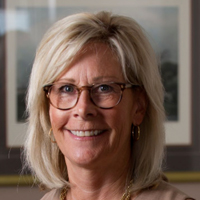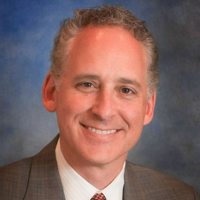

“By failing to prepare, you are preparing to fail.” So said Ben Franklin, whose wise words ring just as true today as they did 250 years ago.
Investment advisors and financial planners are in the business of helping clients prepare for their financial future. But are you considering all the reasonable possibilities — expected and unexpected future events — in providing investment and financial planning services to your clients?
One way to do this is by having clients name a trusted contact.
Naming a trusted contact is not required, but there are a couple of good reasons for naming one. According to Charles Schwab:
1. The trusted contact can be a resource for the advisor to act quickly and decisively if the clients suffers diminished capacity to manages their finances or becomes a target for fraud or abuse; and
2. Naming a trusted contact may reinforce the client’s relationship with the advisor and the client’s sense of security.
Many custodians encourage their clients and investment advisors to name trusted contacts, and for good reason. Schwab encourages its clients and clients of independent advisors on its platform to name a trusted contact for the advisor to contact to:
• Discuss red flags the advisor may see indicating possible financial abuse or exploitation of the client.
• Confirm the client’s contact information.
• Confirm the client’s mental or physical health
• Confirm the identity of the client’s legal guardian or executor, trustee or holder of a power of attorney.
• Address other circumstances when permitted by law.
Although it may sometimes feel awkward for an advisor to raise this subject with a client, procrastination can make matters more awkward if a fraud, exploitation or mental capacity issue arises later in connection with the client. You don’t want to be the advisor who has to explain why you did not mention the advisability of naming a trusted contact earlier.
The trusted contacts issue is not escaping the attention of the media, particularly during the current pandemic. They are catching onto the fact that family members/trusted contacts can help clients in proactive ways — such as scheduling a COVID-19 vaccination online.
For example, a recent article in The Detroit News profiled an 84-year-old man who doesn’t use a computer or a smart phone, so he could not register online for the vaccine — despite the fact that he was in one of the highest priority groups to first receive it. The vaccine rollout’s reliance on the Internet for scheduling impeded many elderly people who are not tech savvy or who lack access to the Internet — a sad irony that trusted contacts can help remedy. Fortunately, this man’s daughter registered him online.
In cases like this, a simple call from the client’s investment advisor or financial planner to the trusted contact can help ensure the client receives help and/or assistance. Is this more than is required from you? Probably, but this extra effort is unlikely to be forgotten by the client or the trusted contact.
Similarly, a recent Barron’s article told the story of a financial advisor in Michigan whose client called and asked the same question she had asked two hours earlier. The advisor knew something was wrong with the client even before the client called a third time later that day with the same question. So the advisor called a family member whom the client had previously named on record as a trusted contact. The advisor told the contact that something had changed with the client. The advisor knew the client well — and she also knew the difference between forgetfulness and early signs of dementia — so she was able to alert the trusted contact.
The Barron’s article states that financial advisors are often the first to spot early signs of dementia for two reasons:
• They are less likely to be in denial about the symptoms.
• Trouble with finances is often one of the first problems.
Encouraging your clients to tell you the names and contact information for their lawyers and accountants is another good idea. Not only is it helpful for you, it can also help ensure that married clients honestly and fully communicate with each other about the size and makeup of their investment portfolio(s) and financial plan. Almost all of us have encountered or heard about situations in which one spouse (typically the husband) passes away and the surviving spouse has no idea about the size — or even the existence — of the investment portfolio. Sometimes it is a pleasant surprise, but not always.
Fortunately, these problems diminish significantly when the people have the wisdom to employ an investment advisor and/or a financial planner because the advisors, as fiduciaries, can ensure both spouses are fully informed and on the same financial page.
What if a client doesn’t have family or friends who could serve as a trusted contact? The client’s attorney or CPA could fill this role. In fact, they may be a better choice even if the client does have family or friends because the attorney and CPA are typically more objective, emotionally detached and less likely to be the subject of suspicion among the client’s heirs (unless the attorney or CPA is a beneficiary in the will). But this is a very fact-specific issue that must be handled on a case-by-case basis.
Regardless, it seems to us inadvisable for the financial advisor to be the trusted contact because that could lead to a conflict of interest in at least some, and perhaps many, situations.
Additionally, if your RIA doesn’t already have an elder abuse policy, now is a good time to establish one where your trusted-contact notification procedure can be expressed. Reviewing the North American Securities Administrators Association’s “NASAA Model Act to Protect Vulnerable Adults from Financial Exploitation” is a good place to start. Key provisions of the model act cover the following:
• Mandatory reporting to government agencies.
• Notification to previously designated third parties (i.e., trusted contacts).
• Delayed disbursements when the advisor reasonably suspects financial exploitation of clients.
• Immunity for advisors who report to government agencies, notify previously designated third parties and delay disbursements to clients.
• Complying with government records requests.
Since this is only a model act, not the law, you should check with your attorney — or at least your chief compliance officer — before implementing the policy to ensure it accurately reflects your rights and obligations under applicable state and federal law.
It’s also a good idea to become familiar with the Senior Safe Act. It provides advisors immunity from liability in civil or administrative proceedings for reporting potential exploitation of a senior citizen — as long as they have been trained to identify and report suspicious activity. Your chief compliance officer and/or compliance attorney can provide such training.
Even then, advisors should check with their chief compliance officer and/or compliance attorney before reporting any such suspected activity because each case is very fact-specific and must be analyzed on its own individual merits, just like choosing the trusted contact.
Don’t fail to prepare: Ask your clients to name a trusted contact.
Becky Gersonde is vice president of Heber Fuger Wendin and currently advises banks, credit unions, foundations and individuals. Dave Barnes is Heber’s president. Established in 1934, Heber Fuger Wendin is an RIA based in Michigan specializing in fixed-income investments for institutions and individuals. www.HeberInvestments.com.







